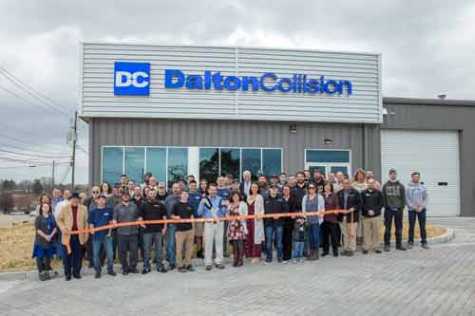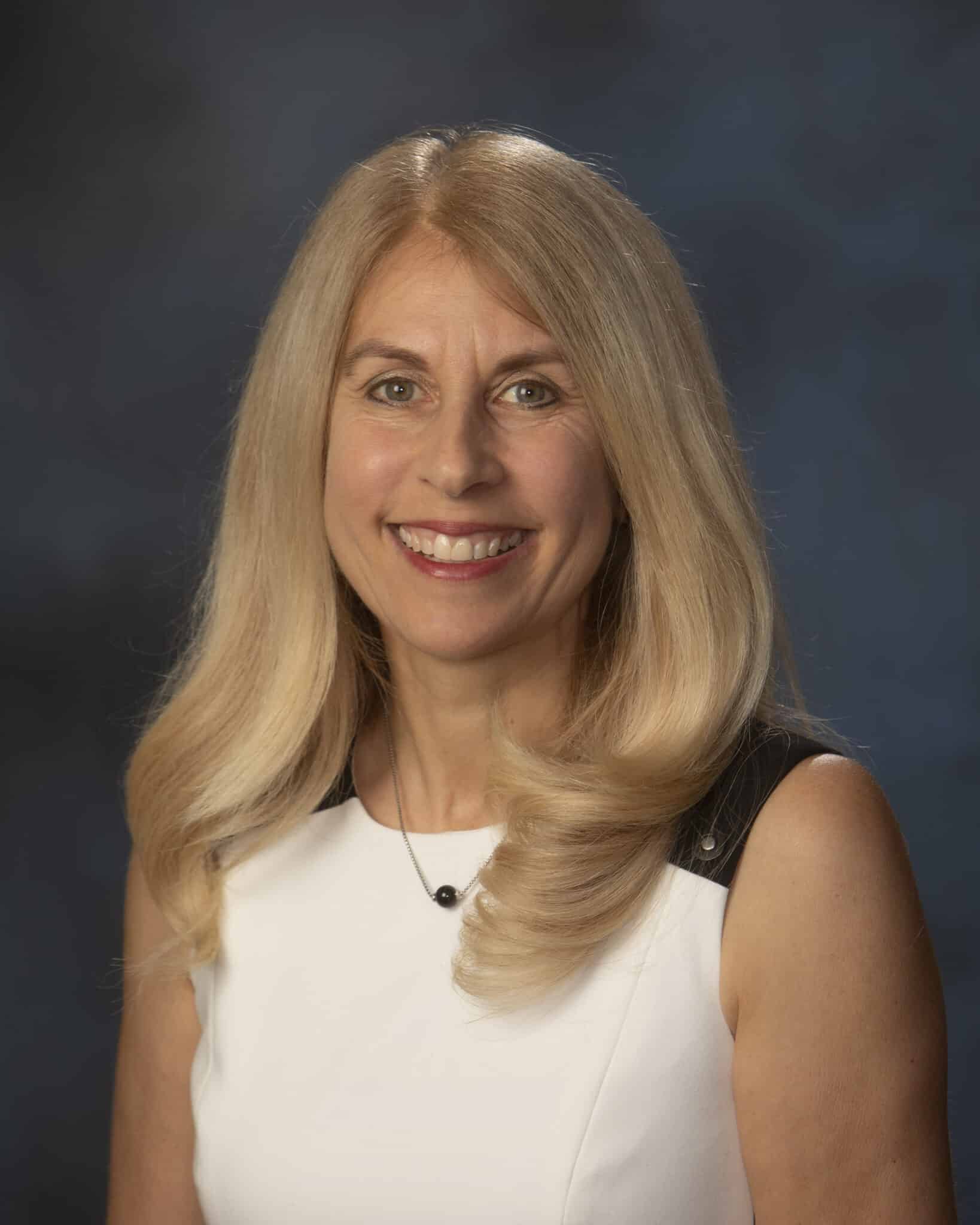Reprinted From: Autobody News
When the coronavirus restrictions were first put into place, the Collision Industry Foundation (CIF) recognized the challenges being faced by the industry.
As a result, the nonprofit organization set up a special COVID-19 fund to support collision repair professionals impacted by the pandemic.
“Since 2001, CIF has been dedicated to raising, managing and donating funds to provide emergency relief to collision repairers who have been impacted by natural disasters or other catastrophic events,” said Michael Quinn, CIF board president and SVP of business development at AirPro Diagnostics. “The donations we received for the COVID-19 fund were vital to help repairers across the country.”
CIF established the fund with $100,000 raised previously, and CCC Information Services matched that amount. Other industry organizations and individuals then donated to the fund, including AirPro Diagnostics, Guy Bargnes, Colette Bruce, Chris Caris, Benjamin Cupelli, Dave’s Collision Center/Halethorpe, Kelli Dewberry, Jeff Hendler, Kurt Lammon, Timothy Morgan, Partstrader, Clark Plucinski, Petra Schroeder, Sean Carey Consultants, Spanesi Americas, Tanya Sweetland, Tractable and John Yoswick.
Funds were also contributed from monthly donors Meredith Bradshaw and Bill Enross.
“We are once again grateful to belong to an industry that believes in supporting their own,” said Quinn. “We thank our generous donors and the industry for allowing CIF volunteers to deliver aid to collision repair professionals and their families in need.”
CIF has received more than 630 individual applications since March, the majority of which met the organization’s established criteria and were funded.
Although the application period ended May 31 and the COVID-19 fund is now exhausted, CIF is still trying to assist collision repairers and encouraging general donations from the industry.
“I was inspired to join the CIF Board of Trustees in early 2019 when I realized just how unique the organization is,” said Ann Gonzalez, CIF board vice president and VP of strategic development for I-CAR. “The support that CIF receives from across the collision repair industry that allows us to then provide assistance back to collision repair individuals in need is exceptional, and something I have never seen in other industries. I am proud to be part of this generous community that, time and time again, steps up in times of need to help our own.”
Autobody News talked to three body shop owners from across the country to find out how CIF support has helped their employees.
Dalton Collision
Nearly 30 years ago, Jerry Dalton opened Dalton Collision, a 13,000-square foot body shop in Blaine, TN. Since then, he and his team of 39 employees have focused on providing excellent service, and safety and peace of mind for customers.
As the business expanded over the years, Dalton opened a second location in Knoxville last year. The facility is approximately 24,000 square feet and serves the north, central and eastern parts of Knoxville, as well as the surrounding counties.
They first learned about CIF last year during the SEMA Show in Las Vegas, when Dalton watched CIF Board President Michael Quinn give a presentation about the organization. Dalton was impressed with the way CIF helped body shop employees at the time in California when they were dealing with wildfires.
When his business began to slow down, Dalton reached out to CIF for assistance. The human resources director at Dalton Collision applied for support on behalf of the employees at both locations.
When they received the checks from CIF, Dalton said it reminded him of winning the Publisher’s Clearing House sweepstakes.
“It was awesome,” said Dalton. “It sure helped out our employees. They were really appreciative.”
He is very grateful for the support from CIF and encourages other collision repair facilities to reach out when disaster strikes.
Recently, Dalton said many of the restrictions have been lifted in Tennessee and business is beginning to ramp up.
“There are more cars on road, which means more car wrecks,” said Dalton. “We’re starting to see business getting back to where it was. It’s still not where it was but it is getting a little better each week.”
As business returns to normal, Dalton’s goal is to increase sales to $1 million a month. He attributes his success to repairing vehicles correctly the way the manufacturer intended them to be and providing good quality customer service for the local community.
Fix Auto Portland East & Fix Auto Gladstone
Since the stay-at-home orders were first put into effect, Camille Eber said many heart-wrenching decisions have been made to save her two collision repair locations in Oregon, Fix Auto Portland East and Fix Auto Gladstone. This includes laying off some of the 23 employees to reduce overhead.
“I’ve never been an extreme penny-pincher, and now we are analyzing nearly every dollar going out the door,” said Eber, co-owner of both locations.
The southeast Portland shop, originally called Roth & Miller, was founded by Chet Roth and C.E. Miller in 1946. Eber’s parents, Jimand Doris, purchased the business in 1963, and Eber took over operations in 1989.
Three years after joining Fix Auto Network in 2009, Eber’s nephew, William Bray, became a partner. They acquired their Gladstone location in 2013 and currently focus on repairing late-model vehicles.
Eber learned about CIF’s COVID assistance from CRASH Network, a weekly online news digest, and forwarded the information to the employees who had been laid off. Although she and Bray provided them benefits for a period of time, they were looking for additional assistance.
“We wanted to show our employees that there was more support that they may be able to receive if they acted on behalf of themselves and did so quickly,” said Eber. “We also wanted to show that our industry is a giving one.”
‘Collisionista’ Petra Schroeder contacted Eber on a Saturday to verify the employees who had been laid off.
“I am very thankful to her for doing the work for these people in need, and appreciate the tremendous support she continues to give to our industry,” said Eber.
Seven of Eber’s staff received financial assistance from the organization.
“What CIF did was above anything I would have imagined,” said Eber. “All business owners know the challenges of managing our businesses, so managing a non-profit like CIF by volunteers generous with their time, and supported by donors generous with their money, is nothing short of remarkable.”
Eber is greatly appreciative of CIF’s assistance and encourages the industry to support its ongoing efforts.
“Organizations such as CIF can be a safety net to a few or many—any filled need is better than none,” she said. “I want to send an enormous thank you to each person who has touched CIF over the years, including those responsible for the original idea, those giving of themselves to operate it, and the many folks who have sent funds in the past and during these tremendously gut-tighteningly hard times.”
In Auburn, MA, Joshua Fuller grew up helping at his family business, Fuller Automotive. Established in 1914, the brand consists of five related companies and has a total of 60 employees, 42 of whom are in collision repair.
Since becoming co-owner in 2003, the fourth-generation body shop owner has been passionate about growing the company and increasing industry awareness.
As an active volunteer, Fuller has been part of the AASP-MA board directors and chaired the I-CAR volunteer committee for Massachusetts since 2014, and also participates in Collision Repair Education Foundation (CREF) fundraising events.
Since the beginning of the COVID-19 situation, Fuller has looked for ways to maintain the safety of employees and customers.
“I got into protective mode,” said Fuller. “As an owner, every day you walk in the front door and that is No. 1 on your mind: how do I make sure our people are safe and protected and can perform the necessary services that our customers are in demand of?”
The goal was to maintain some sense of normalcy while providing the ideal situation for employees. Ultimately, they had to scale down operations and furlough 11 people. As a result, they instituted a work shift program where employees were provided 20 hours of work and could file for unemployment for an additional 20 hours.
Fuller encouraged employees to apply for CIF assistance, and all 17 of those who filled out the application received funds.
“They were ecstatic,” said Fuller. “CIF made it very easy to apply. When they started to receive funds, they thought it was phenomenal.”
He said everybody is feeling some type of pain right now and he is grateful CIF could provide support.
“I was impressed by how they were able to come in and help so many of our stakeholders beyond what we could do. Every little bit helps,” said Fuller. “We were very fortunate to take advantage of it and so are our people. It’s definitely a welcome contribution.”
Since the coronavirus restrictions, Fuller has recognized his employees’ dedication. They have kept busy, cleaning and painting the facility as well as making additional improvements.
They also established a reopening committee to plan how to best operate when the business begins to ramp up. Currently, they set up large tents in the parking lot to provide customers a makeshift waiting room.
“At the end of the day, we really want to make it welcoming for people,” said Fuller.
Fuller said initiatives like these help them focus on moving forward and staying positive.
“We want to keep our identity as a brand and provide superior service as we’ve always done,” said Fuller. “We’re just trying to weather the storm and know that brighter things are on the other side.”
For more information about CIF, visit: collisionindustryfoundation.org, Facebook or LinkedIn.
To apply for assistance, click here.
To donate, click here.


